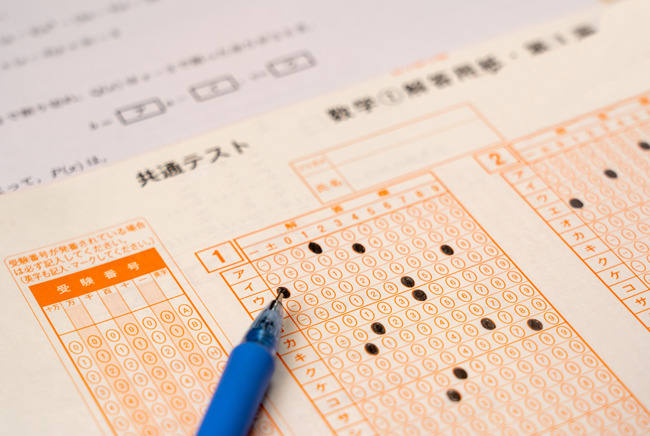
The first common test for university admissions, which can be said to be the core of the national high school connection reform and university entrance examination reform (hereinafter referred to as university entrance examination reform), was held in January 1.This is an initiative aimed at reforming high school education, university education, university entrance exams, and the trinity, and it will be necessary to urgently verify it from multiple perspectives when looking at the future development of education in Japan.This time, I will show science by giving a concrete example.
Philosophy of "Common Test for University Admissions" and changes until implementation
In order to promote the reform of the Trinity, initially, in the "Purpose of Implementation" of the Common Test for University Admissions (hereinafter referred to as "Common Test"), "In the common test, not only knowledge and skills but also thinking according to the characteristics of each subject / subject. The evaluation shall be made with an emphasis on ability, judgment, and expressiveness. "In order to carry out educational reform, it is necessary to clarify the difference from the conventional National Center for University Entrance Examinations (hereinafter referred to as the Center Examination), and to show the determination of reform and effective efforts.Specifically, we are promoting reforms such as increasing the number of questions that require thinking and judgment to read multiple materials and data in many subjects and subjects, and making some answers descriptive. It was a plan to do.
However, both the introduction of descriptive formulas in Japanese and mathematics and the English test aimed at utilizing private exams failed, and the plan was completely overturned, and this time it was implemented.As a result, examinees and high schools have no choice but to respond to rapid changes.
Evaluation and verification after the implementation of the common test "Science"
What kind of evaluation has been given to the common test conducted in the midst of frequent “incidents” as shown above? Consider "science".
The common test was a question in line with the "Outline of the Common Test for University Admissions" and the "Policy for Creating Common Test for University Admissions Related to the Selection of University Admissions" presented by the "National Center for University Entrance Examinations".Specifically, "We emphasize the problems that question the quality of understanding of knowledge and the problems that are required to be solved by demonstrating thinking, judgment, and expressiveness, and discover problems in social life and daily life. Emphasis is placed on setting the scene of the problem with the learning process in mind, such as the scene of conceiving a solution and the scene of considering based on materials and data. "In each subject, there were good questions that could be called thinking type, and there were also problems that were just memorization and reproduction type, and there were various miscellaneous and large differences.
In science (specifically, "biology" and "chemistry"), there were some situations where the students who had been seriously working on it could not be seen. "Biology" was extremely simple, and high scores were obtained even if deep learning was not established.Since the high score was obtained, I did not hear any complaints from the examinees, but it is a fact that some people questioned whether it was a thinking-type problem.On the other hand, in "chemistry", both essential good questions and strange problems were found.In particular, questions that are not found in textbooks (Questions 5, QXNUMX), questions that are related to chemistry but eventually become a problem in junior high school mathematics (Questions XNUMX, QXNUMX), etc. It was seen.If you read the question carefully, you can answer it, but if the wrong message is sent to the school, the examinees, the examinees, and the textbook company, the effect is immeasurable.I am afraid that the already thick textbooks will become even thicker only when the textbooks are revised.In the new course of study, aiming to develop qualities and abilities, it is required to grasp the original essence of academics and deepen thinking, and questions will be required to respond to it.
In addition, it is difficult to think that the adjustment of questions between subjects in science was being considered. In "Biology", although there were quantitative treatments and questions to read graphs, it was easy. "Chemistry" is firmly in line with the purpose of the common test, but there are problems that can be solved in an instant due to unreasonable questions, and there are also problems that seem to be thinking-type, and as a result, unfamiliar active students lose points. It became.
In addition, as a high school acceptance, it had a positive effect on the so-called high-ranking students who have a good academic ability, but it emphasizes the students of so-called middle-class academic ability, mere knowledge regeneration, and practice of exam preparation patterns that emphasize drill-like training. There was a view that the type of student might have had a hard time.It was the view that it was possible to improve the lessons toward the "independent, interactive and deep learning" that the national government is aiming for, and if the students were empowered, it would be possible.
→next pageFor the future-from the perspective of sustainability-
- 1
- 2

